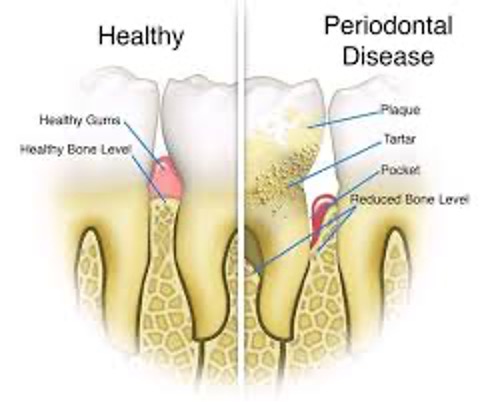The management of periodontal varies with the severity of the disease and the experience of the health care provider. Some gum diseases can be serious challenge. As a result of this a specialist Periodontist often makes specific recommendations to give the patient the best chance of success.
In the issue we will discuss how the specialist usually manages gum disease.
What is a Periodontist?
A periodontist is a dentist who specializes in the prevention, diagnosis, treatment of periodontal disease and in the placement of dental implants. Periodontists receive extensive training in oral inflammation and bone dynamics. Periodontics is a dental specialty which includes the maintenance of the health, function and esthetics of the gum and teeth structures and tissues. Some Periodontists offer Fastbraces as a treatment modality because it’s speed, safety protocols and predictable tooth results. The secure minor tooth movement strengthens the bone and reduces the bacterial load that builds up around crooked teeth.
The word “periodontal” comes from two words, perio-around and dont-tooth. If we are looking at periodontal problems, we are looking at areas around the tooth- like bone, cementum and the ligaments.
Gingivitis is the swelling of the gum tissue without any bone or ligament damage. The gums become red and bleed easily. Gingivitis is often caused by inadequate oral hygiene. This condition is reversible with professional treatment and good oral home care.
Aggressive Periodontitis is characterized by rapid bone destruction. There is a strong genetic predisposition in these cases where the disease is inherited from parent(s) to their child. We often see severe disease in teenagers and young adults as early as 13 years young.
Chronic Periodontitis is the most common form of periodontal disease. It is the loss of the ligament and bone support anchoring the tooth. The most common age bracket is above 40 years young. It creates a pocket that is occupied by bacterial plaque and calculus. There is usually some swelling and/or recession of the gums in these patients
How Do We Treat Periodontal Diseases?
When considering treatment choices for periodontal diseases the dentist should be patient-centered, minimally invasive and cost-effective. Today, we are best able to achieve this through non-surgical means. Non-surgical periodontal treatment does have its limitations, however. When scaling does not achieve the desired result then laser surgery may be indicated to restore periodontal health.
The most common procedures performed by a Periodontist are as follows:
- Nonsurgical treatment (scaling and root planing)
- Laser treatment (curettage and therapy)
- Regenerative procedures (growing gum tissue and bone)
- Dental crown lengthening (for better crown fit)
- Pocket reduction procedures (eliminate the diseases colony of germs)
- Gum grafting procedures (growing gum tissue)
- Plastic surgery procedures (for better cosmetics)
- Dental Implants (permanent teeth replacements)
- Fastbraces (minor teeth movement to enhance bone strength and better cleaning)
Scaling and root planing:
Scaling and Root planing is a careful deep cleaning of the pockets around root surfaces to remove bacterial plaque, toxins and calculus [tartar]. Scaling and root planing sometimes is followed by additional therapy such as local delivery (below the gum) antimicrobials and systemic antibiotics.
After scaling and root planing, many patients do not require any further active treatment. However, the majority of patients will require ongoing maintenance and recalls (special cleanings) to sustain their great results.
Periodontal diseases are extremely common among the Bahamian population. Despite its prevalence, with proper and prompt treatment along with follow up care patients are able to retain their teeth for a life time.
Unfortunately, many Bahamians are unaware of their gum conditions because they have not visited a dentist or was never told they suffered from periodontal disease. Since the disease is mostly chronic which means it is painless many patients are unaware of the signs and symptoms unless they are diagnosed by an experienced dentist.
We live is an exciting time in dentistry!
For most of the patients who suffer from or concerned about periodontal disease, today we are able to predictably apply these painless treatment choices with promising results.
Dr. Kendal V. O. Major is Founder and CEO of Center for Specialized Dentistry which is a comprehensive family dental practice operating in Nassau and Freeport. He is the first Bahamian Specialist in gum diseases and dental implants since 1989. He has attained certification as a Master Provider in Fastbraces Technology. His practice is located at 89 Collins Avenue, Nassau at (242)325-5165 or [email protected].

Anatomy of the Healthy and Diseased Periodontal Tissues






